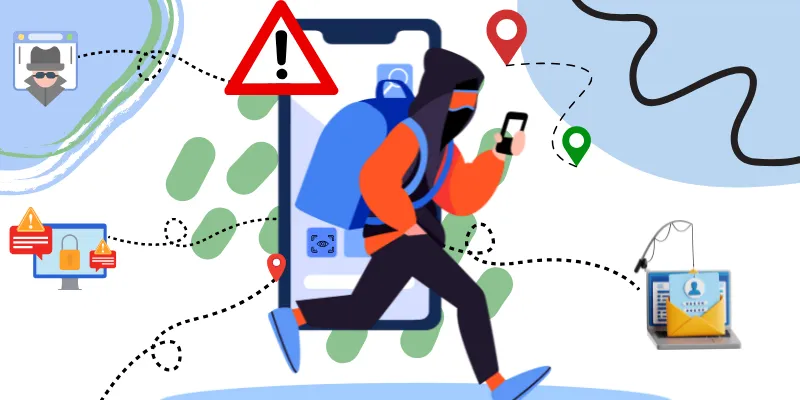
Your Phone Might Be the Weakest Link in Your Business
Most business owners carry their phones everywhere. It’s your calendar, your email inbox, your client communication hub, your mobile bank account, and let’s be honest—your backup laptop when you're on the go.
But here’s the part most owners never think about: that same phone can be tracked, hacked, and used against you without you ever realizing it.
It’s not paranoia. It’s reality.
It's scarier than you think. One compromised phone can unravel months or years of progress. We’re going to walk you through how this happens—and more importantly, what to do about it.
How Phone Tracking Really Works (and Why It’s Easier Than You Think)
You don’t need to be a hacker to spy on a phone. All it takes is one wrong click, a few unchecked app permissions, or installing a shady “monitoring” tool. We’ve seen:
Spyware apps that log calls, texts, and even turn on your camera or mic remotely.
Phishing links sent by text or email that silently install tracking tools.
Location sharing enabled through apps you haven’t touched in months.
Stalkerware disguised as harmless tools that run quietly in the background.
These tools are widely available and don’t require technical know-how. That’s what makes them dangerous.
If You Own a Business, This Is a Big Deal
Your phone isn’t just personal—it’s a gateway into your entire business.
We’re talking:
Confidential client emails
Banking info and saved credentials
Payroll apps and employee records
Internal chats, call logs, and deal notes
If someone gains access to your phone, they’re not just spying on you—they’re walking through the front door of your company and hanging out in the corner of your office, quietly stealing your secrets.
The average data breach for a small business costs around $250,000. But the real cost is the time, reputation, trust that’s lost along the way, and the inevitable fines and lawsuits that are becoming very popular. After all is said and done, the cost is in the millions and can drag on for years.
And most business owners don’t know they’ve been compromised until it’s far too late.
Signs Someone Might Be Watching Your Phone
Spyware is designed to hide, but there are red flags:
Your battery is draining faster than usual
Your phone feels warm even when idle
Data usage spikes with no explanation
Strange background noises during calls
Random apps you don’t remember installing
Freezing or crashing more often
None of these are proof on their own—but together, they should raise your suspicions.
What You Can Do Right Now to Stop Phone Tracking
If something feels off, take action. Here's where to start:
Run a mobile security scan with a trusted app.
Check all app permissions—especially for microphone, camera, and location.
Update your operating system to close known vulnerabilities.
Factory reset your phone if spyware is confirmed (after backing up critical info).
Turn on biometrics and multifactor authentication for all business-related apps.
This isn’t overkill—it’s the new baseline.
Don’t Let One Device Take Down Your Business
Your phone is your mobile command center. And it deserves the same level of protection as your office firewall.
Cybercriminals don’t care how successful or small your business is. They care that you’re unprotected—and phones are often the weakest link.
That’s why we created the qnectU Cyber Risk & Resilience Call. It’s fast, free, and built to uncover hidden gaps in your IT and mobile security.
Click here to schedule a quick 26-minute call and take the first step toward locking down your business—for good.
